Observation skills Science Worksheets for Ages 5-8
8 filtered results
-
From - To
Develop your child's scientific observation skills with our engaging worksheets designed for ages 5-8! Our Science Observation Skills Worksheets encourage young learners to explore, notice, and record details methodically. Featuring fun exercises, vivid illustrations, and age-appropriate tasks, these worksheets help children enhance their ability to observe and describe the world around them. From nature walks to simple experiments, our activities make learning interactive and enjoyable. Equip your child with foundational skills needed for scientific inquiry and foster a lifelong curiosity with our expertly crafted observation worksheets. Start today and watch your child's analytical abilities blossom!


Matter: Assessment 1 Worksheet
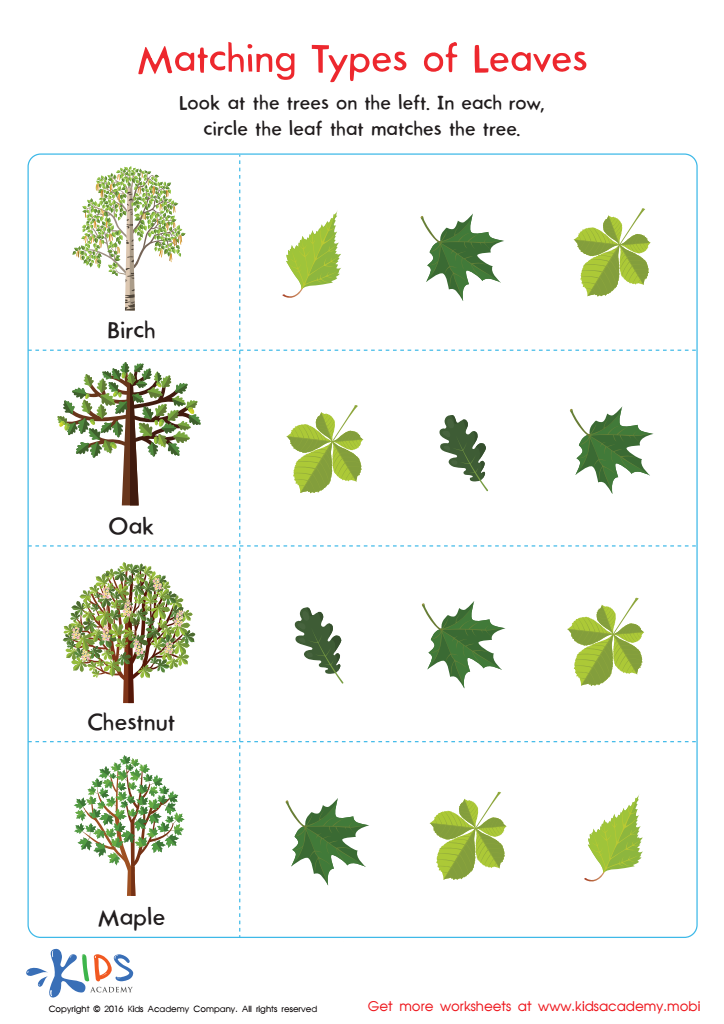

Matching Types of Leaves Printable
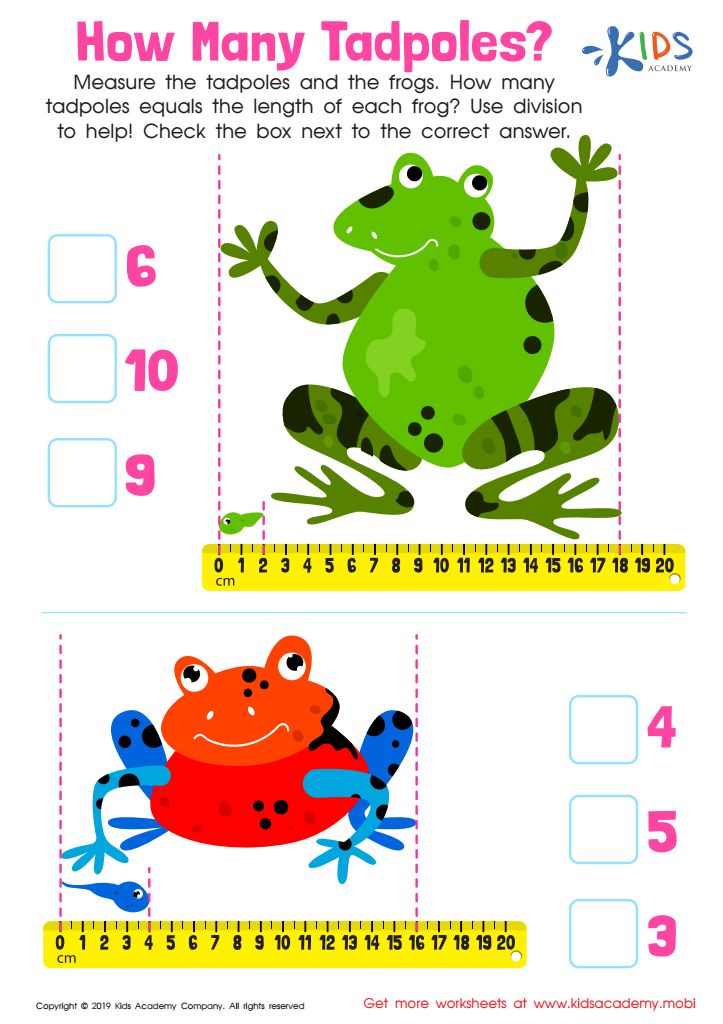

How Many Tadpoles Worksheet


The 5 Sense Scientist Worksheet
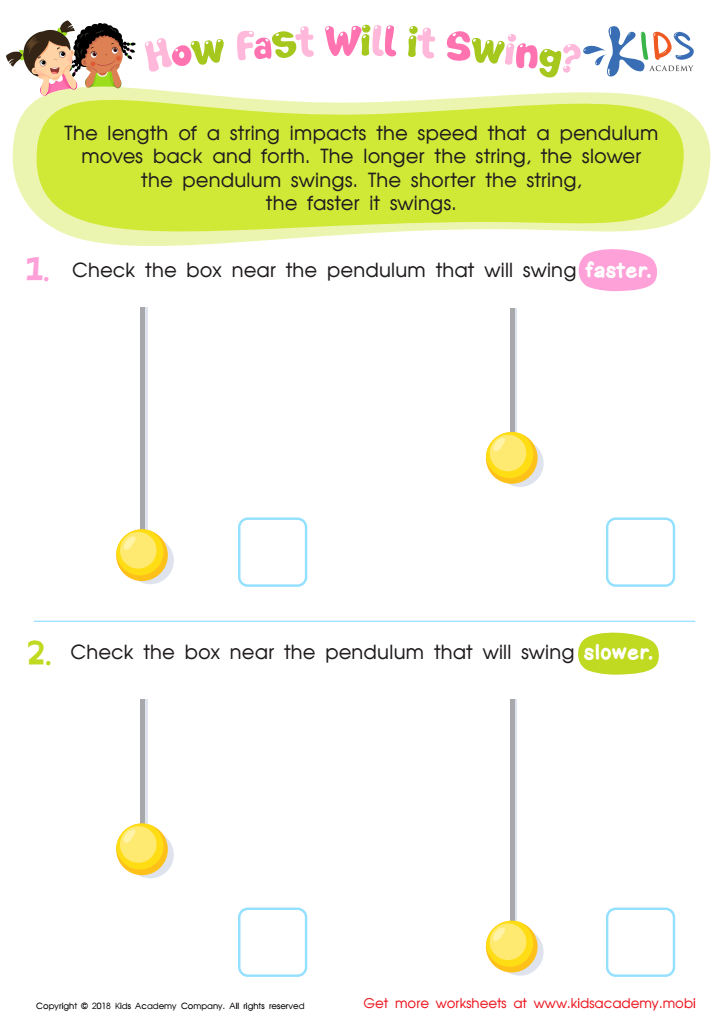

Pendulum Experiment Worksheet For 3rd Grade
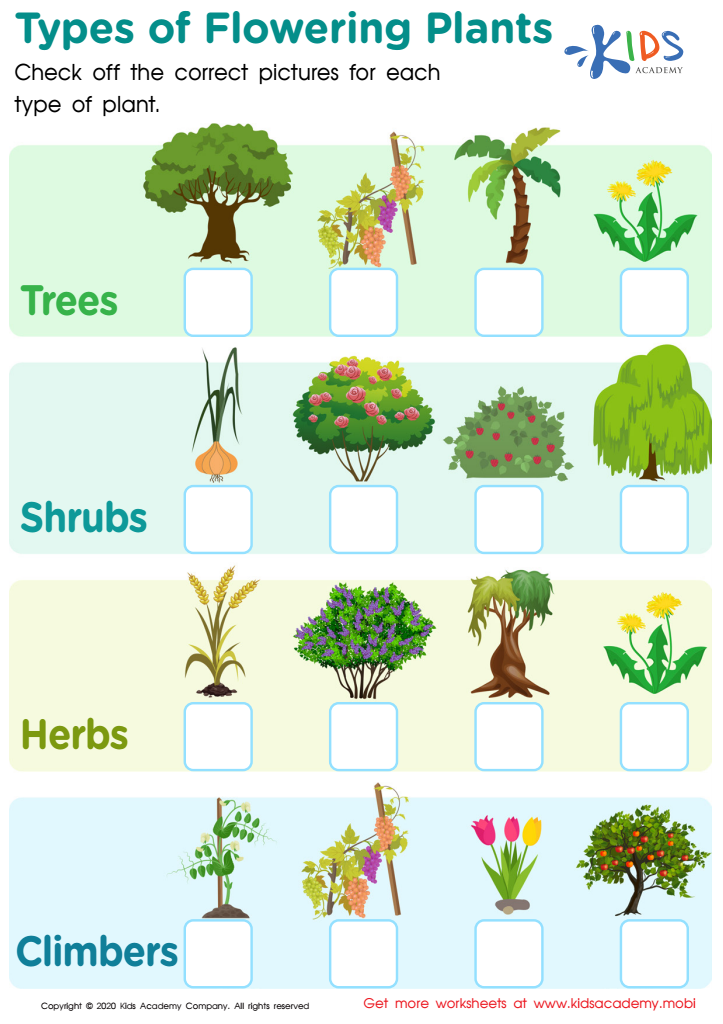

Types of Flowering Plants Worksheet
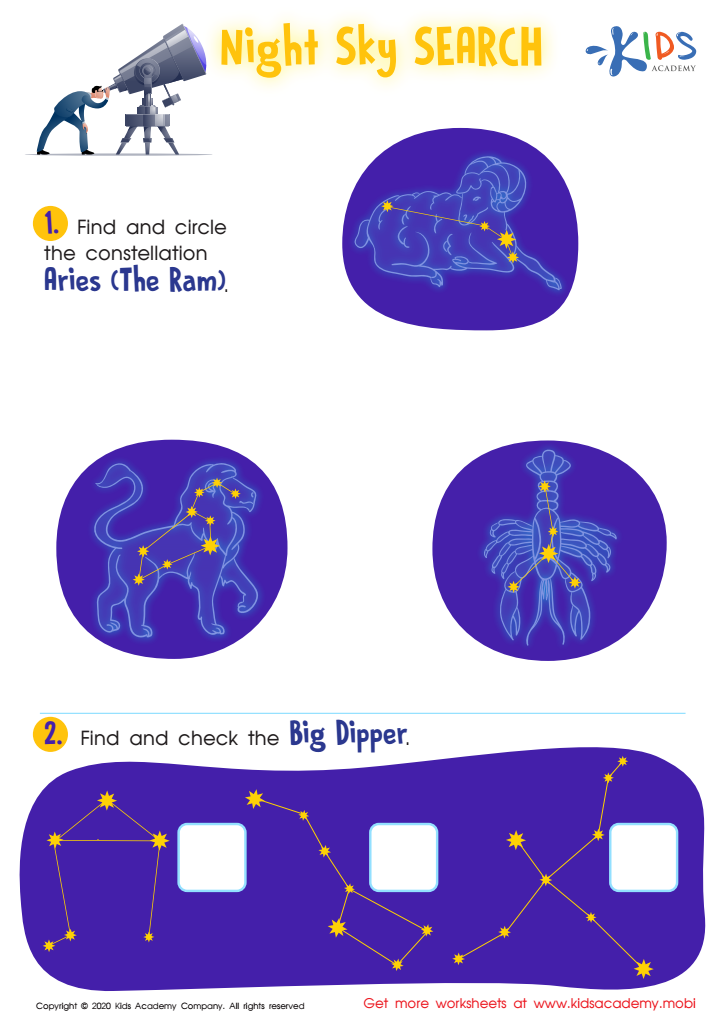

Night Sky Search Worksheet
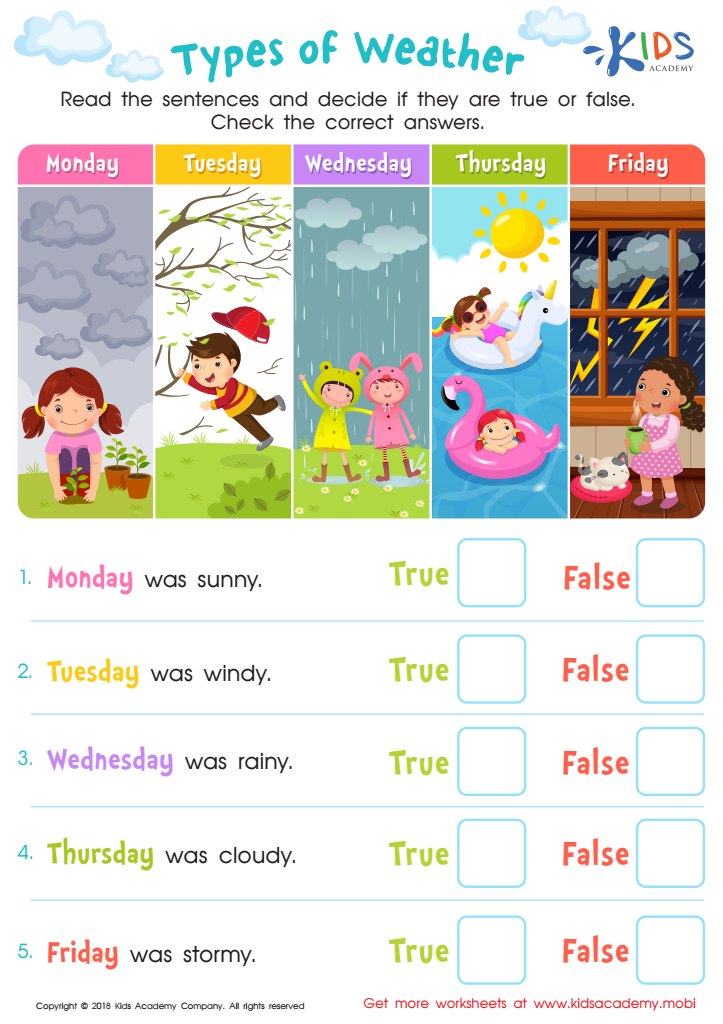

Types of Weather Worksheet
Observation skills are fundamental for young children, especially in the context of science, as they lay the foundation for critical thinking and lifelong learning. At ages 5-8, children's brains are highly receptive and exploratory. Parents and teachers cultivating observation skills enable kids to make sense of the world methodically and analytically.
Developing keen observation skills helps children spot patterns, differentiate objects, and notice details they might otherwise miss. This fosters curiosity, encourages active learning, and instills a scientific mindset geared towards asking questions and seeking answers. When children observe, they learn to gather information using their senses—seeing, hearing, touching, tasting, and smelling—which broadens their understanding and stimulates cognitive development.
Moreover, practicing these skills enhances vocabulary as children describe what they see and experience, boosting both language and communication abilities. Children who learn to observe are more likely to engage in thoughtful reflection and develop better problem-solving skills, important across all areas of study and everyday situations.
For parents and teachers, nurturing observational skills means providing opportunities for kids to explore and interact with diverse materials and environments. Guiding them through experiments, nature walks, or even simple kitchen activities can encourage rich observational experiences. Ultimately, strong observation skills in science create a solid platform for academic success and curiosity-driven discovery throughout life.
 Assign to My Students
Assign to My Students




















